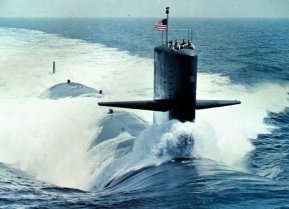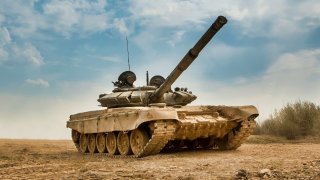Russia: A Military Threat to NATO After the Ukraine War is Over?
A defeated Russia would be forced to cooperate, while a victorious Russia would be emboldened to pursue further expansion. The fate of Ukraine, therefore, is a major factor in the Russian threat in the future.
The Post-War Russian Threat to NATO: Although Ukraine dominates Russian attention today, Russian leaders are already considering their future. Whether Russia will pose a threat to NATO in the future depends on several drivers:
-Does Russia retain territory captured from Ukraine?
-Is Russia’s military power reduced by the Ukraine war whether it achieves its objectives or not?
-Does Vladimir Putin remain president of Russia?
All of those drivers will impact Russia’s future threat. By most measures, with the exception of Russia’s nuclear deterrent, a Russia forced to retreat from Ukraine would be less of a threat to the world than a Russia that prevails in Ukraine.
First, if Russia retains territory captured from Ukraine, it can claim to be the victor in the conflict. Russian leaders have set territorial annexation as a bottom-line requirement for any end to the conflict. If Russia were to achieve that goal, it would be encouraged to look for further similar opportunities, such as claiming portions of Estonia, Moldova, or Kazakhstan that are demographically analogous to eastern Ukraine. The temptation to claim a portion of Estonia would place Russia in direct conflict with NATO, although it remains to be seen whether larger NATO states would be willing to go to war over Estonia.
By retreating from Ukrainian regions, Russia would be forced to accept Ukrainian sovereignty, which it has denied up to now. That would, in turn, strengthen sovereignty arguments of other post-Soviet states where Russian ethnic people reside. It would throw into question the “Russian World” (Russkiy Mir) concept on which Russian actions rest. The threat of Russia outside its own territory would be reduced.
Second, Russia is expanding military power in Ukraine, both manpower and material, that it will need to rebuild after the war with Ukraine, regardless of whether it achieves its territorial goals. That will temporarily leave Russia in a weakened conventional military state. Many Western analysts overestimated Russian military power before the full-scale invasion of Ukraine. However, the Russian military has manifested itself as incapable of defeating a smaller Ukrainian army. A repeat of the pre-war misassessment would be less likely in light of Russia’s performance in Ukraine.
It would retain, however, its strategic nuclear deterrent, which it would continue to brandish at adversaries. A weakened Russian military that considers itself the victor in Ukraine would use its nuclear inventory to chest-thump its adversaries and the states that fall within the Russian World. A defeated Russian military would use the nuclear threat as its last instrument of deterrence to protect Russia from invasion. Either way, Russia’s nuclear weapons will play a role in post-Ukraine Russian military calculus. Ukrainian President Volodymyr Zelensky’s recent threat to build a Ukrainian nuclear deterrent would raise risks in the region to an unprecedented level.
Third, although Vladimir Putin is showing no signs of retiring soon and views himself as indispensable to Russia’s future, he recently turned seventy-two.
He will not last forever.
Who replaces him and what policies that person takes will depend partially on Russia’s fortunes in Ukraine.
If Russia fails to achieve its objectives in Ukraine, the likelihood of a successor that is more accommodating to the West is greater. Besides the nuclear deterrent, Russia’s military reputation would be shattered and its people discontented. A post-Putin leader would need to look for opportunities to rebuild Russia’s economy, which would mean being less antagonistic toward prosperous Western powers.
If Russia views itself as victorious in Ukraine, the next leader will have a mandate to pursue the Russian World even further. If it worked once, it can work again. Such a leader would continue to view the EU as an obstacle rather than a partner and equate the EU with NATO as a military adversary.
A defeated Russia would be forced to cooperate, while a victorious Russia would be emboldened to pursue further expansion. The fate of Ukraine, therefore, is a major factor in the Russian threat in the future.
About the Author and Expertise
Kevin Riehle is a lecturer in intelligence and international security at Brunel University London. He has researched and written widely on Russian security and intelligence matters.
Image Credit: Creative Commons and/or Shutterstock.


